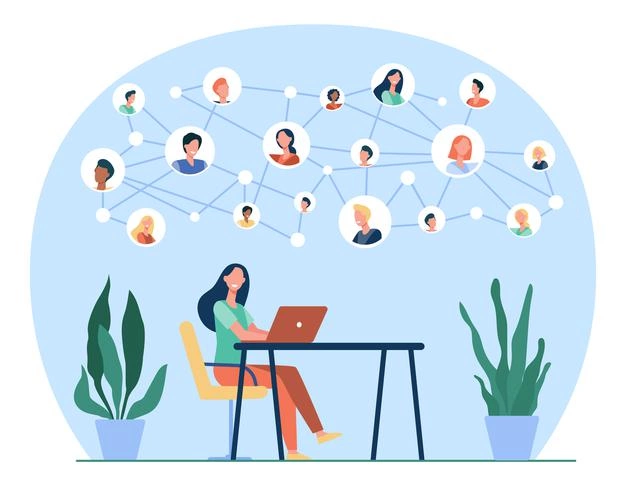1. What are networking skills?
Let’s start by considering what networking means to you…

Networking is an opportunity to connect with people, similar to you (= sharing common interests, professions or ideas) or completely different (=outside of your comfort zone, new collaborators or external experts). Through networking you can establish new contacts, but also face new challenges. You can even meet potential partners, employers or friends.
The challenge behind networking is the approach you take. Especially if you are new to networking, you have to work on the right way of communicating, getting you message across and building trust. It is challenging to speak to people you do not know and it you are a social person it will be easier. The way you speak represents who you are and what you have to offer. Even if you have a lot to say, it is important how you do it to make a good impression. Therefore, work on your own value first to be able to present yourself to others and find the values in them.
With globalisation, more challenging environments and the changing expectations in terms of skill needs, the definition of what networking is does not remain the same. Although unskilled employees are nowadays more frequently supported by technology, still remaining are tasks that involve the interaction with humans to maintain activities, guarantee fulfilment of tasks and further communicate information. This is where networking skills come in handy.
So, what are these networking skills?
Networking skills will differ by sector and services, might be linked with education or hierarchy and most likely with daily routine, habits and responsibilities.
A.

In networking an essential skill is being an active listener. This means that you allow others to speak, share their ideas and thoughts, and show your appreciation towards them. It is not true that by listening you are being passive in the conversation. By being an attentive listener, you will find out information that puts you in the position of continuing the conversation in a more valuable way. You will be able to provide better ideas, share your opinion and even tips, advice or recommendations giving the opportunity for a deeper conversation and exchange of experience.
B.

Staying focused is also a networking skill. When you concentrate on the speaker(s) and the discussion you are having, you are showing your interest and making a small step towards building a relationship. If you are ignorant or too confident, not responding straightforward but in general, you are unfolding your lack of interest in the conversation, not to mention your politeness.
C.

As simple as it may seem, but must be mentioned, is that communication, a two-way interaction, is another essential networking skill. The ground to networking, communication is the discussion for the exchange of information, whether verbal or non-verbal, and requires attention to detail.
D.

Public speaking, a type of communication and networking skill, requires you to be ready to stand in front of an audience (also in front of a single person) to present your thoughts and open up to feedback. It is important to mention that public speaking is not a monologue but the introduction to a discussion, presentation and a starting point for networking, not to mention a context for making a first impression.
E.

When you are inside the conversation, empathy is crucial and the most important networking skill. It is the ability to imagine you are in the shoes of the other person, to identify their emotions or share similar expressions towards an issue. Appropriate reaction will show if you are empathetic.
F.

Networking is also part of your everyday work as a team. Collaboration and teamwork are part of networking at the workplace. It is as important to speak with your colleagues, on different topics to exchange opinions and see what works best for you, what things you have in common and how you can support yourselves, as networking with external stakeholders. Moreover, it will be easier for you to network with those you are at least familiar with than strangers, and to practice your networking skills. Collaboration is valued in open innovation.